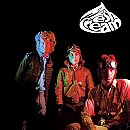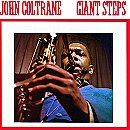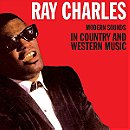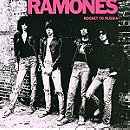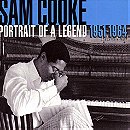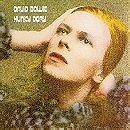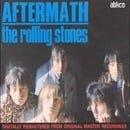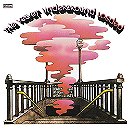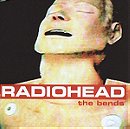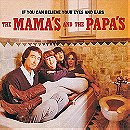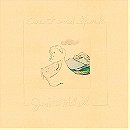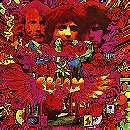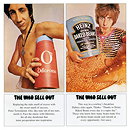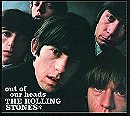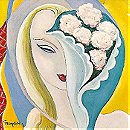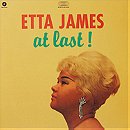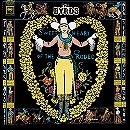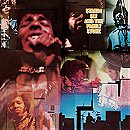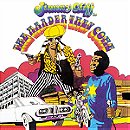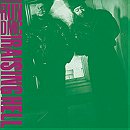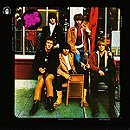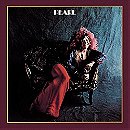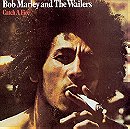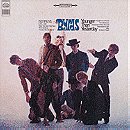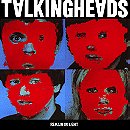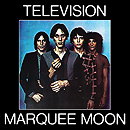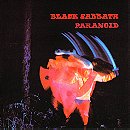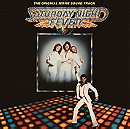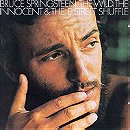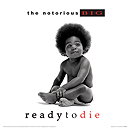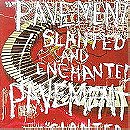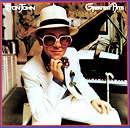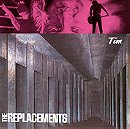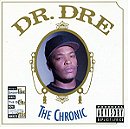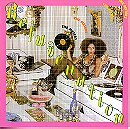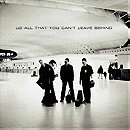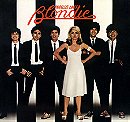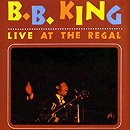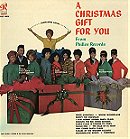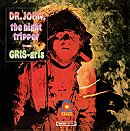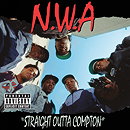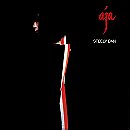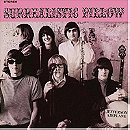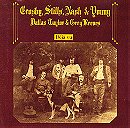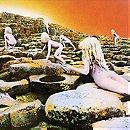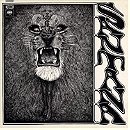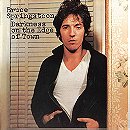RS 500: Part 2
Sort by:
Showing 1-50 of 100
Rating:
List Type:
Rolling Stone's 500 Greatest Albums of All-Time [book version]
RS 500: Part 1
RS 500: Part 2
RS 500: Part 3
RS 500: Part 4
RS 500: Part 5
RS: The Immortals
RS: 100 Greatest Singers
RS: 50 Essential "Women in Rock" Albums
RS 500: Part 1
RS 500: Part 2
RS 500: Part 3
RS 500: Part 4
RS 500: Part 5
RS: The Immortals
RS: 100 Greatest Singers
RS: 50 Essential "Women in Rock" Albums
In the Wee Small Hours - Frank Sinatra
"In the Wee Small Hours, the first collection of songs Sinatra recorded specifically for an LP, sustains a midnight mood of loneliness and lost love - it's a prototypical concept album. From the title track, brought in on the bell tones of a celesta, through a trenchant recast of "This Love of Mine," a hit from his Tommy Dorsey days, Sinatra - reeling from his breakup with Ava Gardner - is never less than superb. His voice rarely hits the same downbeat as his languorous rhythm section, yet they're locked in a fluid step. Put your ears close to the speaker and you can hear the soft intake of his breath."
JxSxPx's rating:


Fresh Cream - Cream_IV
"Bassist Jack Bruce and drummer Ginger Baker had racked up credits with Graham Bond and Manfred Mann; guitarist Eric Clapton had inspired "Clapton Is God" graffiti all over London with the Yardbirds. Cream chose their name as a joke on their own supergroup credentials. Together, they gave a psychedelic pop spin on the blues, retooling Skip James' "I'm So Glad" and Muddy Waters' "Rollin' and Tumblin'" as well as originals such as "N.S.U." and "I Feel Free." Fresh Cream is tight and concise, a blueprint for the band's onstage jams. When Cream hit the U.S. acid-ballroom circuit, they stretched these tunes into quarter-hour improvisations."
Giant Steps - John Coltrane
"With characteristic humility, Coltrane said the title of this album referred to the loping instrumental gait of his bassist, Paul Chambers. In fact, the LP was one of two giant steps Coltrane himself made in 1959: his playing on Miles Davis' epochal Kind of Blue and the recording of this, Coltrane's Atlantic debut. On seven originals, he played with a heated melodic enthusiasm - flying clusters of notes - that declared new possibilities for jazz improvisation and predicted the ferocious, harmonically open lyricism that would come with his mid-Sixties records on Impulse. "Mr. P.C.," "Cousin Mary" and "Spiral" became Coltrane's first classics."
Sweet Baby James - James Taylor
"Taylor's second album landed him on the cover of Time magazine, and its gentle melodies drew the blueprint for many of the Seventies singer-songwriters that followed. But he went through a private hell on his way to success; the hit "Fire and Rain" was inspired by Taylor's stay in a psychiatric institution in the mid-1960s (he had committed himself) and the suicide of a fellow patient. In the months before making this album, Taylor committed himself again, this time to kick heroin. His confessional lyrics set a new standard, as did the spare melodicism of his songs. But it was the quiet strength in his voice that makes the album a model of folk-pop healing."
Modern Sounds in Country and Western Music - Ray Charles
"Country and soul were deeply entangled Southern traditions and had been cross-pollinating for years. But Modern Sounds was still the audacious boundary-smasher its title promised, with Charles applying his gospel grit and luscious soul-pop strings to standards by Hank Williams ("Half as Much," "You Win Again," "Hey, Good Lookin'") and Eddy Arnold, whose lover's lament "You Don't Know Me" he recast as a parable about race relations in light of the civil-rights struggle. Modern Sounds became the most popular album of Charles' career and includes the hits "I Can't Stop Loving You" and "Born to Lose."'
JxSxPx's rating:


Rocket to Russia - Ramones
"The Ramones wrote their third album on tour, as they took the gospel of three chords and ripped denim beyond New York's five boroughs. Rocket to Russia was also their first true studio triumph: an exuberant, polished bottling of the CBGB-stage naplam of Ramones and Leave Home. The razor-slashing hooks bring out the Top Forty classicism in "Rockaway Beach" and "Sheena Is a Punk Rocker," plus the lonely-boy poignancy of Joey Ramone's vocals in "I Don't Care" and "I Wanna Be Well." Rocket to Russia was also the last album made by the Ramones' founding four: drummer Tommy Ramone left to be a full-time producer."
JxSxPx's rating:


Portrait of a Legend 1951-1964 - Sam Cooke
'"Sam Cooke was the best singer who ever lived, no contest," asserted Atlantic Records' Jerry Wexler. Cooke was a gospel star who crossed over to rock & roll, helping to invent the music that would known as soul. He kept the floridly emotional vocal style of gospel in his pop work, writing his own best hits ("Wonderful World," "You Send Me"). This collection spans his whole career, from his early work with gospel kings the Soul Stirrers to the civil-rights anthem "A Change Is Gonna Come," which became a posthumous hit after Cooke was shot to death at an L.A. motel in 1964."
Hunky Dory - David Bowie
"Bowie, then twenty-four, arrived at the Hunky Dory cover shoot with a book of photographs of Marlene Dietrich: a perfect metaphor for this album's visionary blend of gay camp, flashy rock guitar and saloon-piano balladry. Bowie marked the polar ends of his artistic ambitions with tribute songs to Bob Dylan and Andy Warhol. In "Oh! You Pretty Things," "Quicksand" and "Changes," he invented and perfected a new style of rock & roll glamour. On "Life on Mars?," he sings to all the weirdos like himself who feel like aliens on Earth. Soon an entire army of kids would attempt to remake themselves in his spangled image, proving his point."
JxSxPx's rating:


"Aftermath of what? Of the whirlwind fame that had resulted from releasing five albums in two years, for one thing. The Stones sound mean and jaded on Aftermath, writing bad-boy songs about Swinging London's overnight stars, groupies, hustlers and parasites. This is the first Stones album completely written by Jagger-Richards, a collection of tough riffs ("It's Not Easy") and tougher acoustic blues ("High and Dry"); of girls seeking kicks ("Under My Thumb") or just escape ("Think"); of zooming psychedelia ("Paint It, Black"), baroque-folk gallantry ("I Am Waiting") and epic groove (the eleven-minute "Going Home")."
Loaded - the Velvet Underground
"The Velvet Underground made their most accessible album in 1970, during a summer comprised alternately of triumph and stress. They were playing their first New York shows in three years (at Max's Kansas City) and slowly falling apart. Drummer Maureen Tucker was on maternity leave; singer-guitarist-songwriter Lou Reed quit in August before the record was even finished. But Reed left behind a pair of hits ("Sweet Jane," "Rock 'n' Roll"), two of his finest ballads ("New Age," "Oh! Sweet Nuthin'") and a record that highlights the R&B/doo-wop roots and Sun Records crackle buried deep inside the Velvets' noir-guitar maelstrom."
JxSxPx's rating:


The Bends - Radiohead
"If the first half of the Nineties was shaped by Nirvana, the template for the second half was set by Radiohead. Though the 1993 smash "Creep," from their debut, is itself indebted to Kurt Cobain, The Bends, their second album, is more grand, more operatic, marrying a majestic and somber guitar sound to Thom Yorke's anguished choirboy vocals. "Fake Plastic Trees" was something of a radio hit, an introspective acoustic ballad of alienation. And not yet shying away from guitar anthems, Radiohead draw on the epic grandeur of U2 and the melancholy of the Smiths in "Nice Dream," "Just" and the haunting finale, "Street Spirit (Fade Out)."'
If You Can Believe Your Eyes and Ears - The Mamas & The Papas
'"California Dreamin'" was this album's first hit, a warm breeze that inspired countless hippie migrants to hit the road for the West Coast in time for the Summer of Love. But Papa John Phillips came from New York, and under his group's sunny surface, the songs were full of darkness and wit. His fetching young bride, Michelle Phillips, Mama Cass Elliott and Denny Doherty joined him in gorgeous four-part harmonies over folk-rock guitars, but the songs were made of tough stuff, especially "Got a Feelin'," "Go Where You Wanna Go" and the junkie-seduction tale of "Straight Shooter."'
Court and Spark - Joni Mitchell
"Mitchell followed up Blue with the underrated For the Roses, a set of harmonically and lyrically complex songs. Court and Spark is, in comparison, smoother and more straight-ahead; it became the biggest record of her career, hitting Number Two. Working saxophonist Tom Scott's fusion group, L.A. Express, Mitchell settles into a folk-pop-jazz groove that remains a landmark of breezy sophistication, particularly on the Top Ten single "Help Me." Strange but true: a cover of "Twisted" by the scat-jazz vocal group Lambert, Hendricks and Ross closes the album - with stoner comics Cheech and Chong singing backup."
JxSxPx's rating:


Disraeli Gears - Cream_IV
"Of all Cream's studio albums, Disraeli Gears is the sharpest and most linear. The power trio focused its instrumental explorations into colorful pop songs: "Strange Brew" (slinky funk), "Dance the Night Away" (trippy jangle), "Tales of Brave Ulysses" (a wah-wah freakout that Eric Clapton wrote with Martin Sharp, who created the kaleidoscopic cover art). The hit "Sunshine of Your Love" nearly didn't make it onto the record; the band had trouble nailing it until famed Atlantic Records engineer Tom Dowd suggested that Ginger Baker try a Native American tribal beat, a simple adjustment that locked the song into place."
The Who Sell Out - The Who
"The Who's third record was their first concept album, a tribute to the U.K.'s offshore pirate-radio stations. The band strung the songs together with mock commercials ("Heinz Baked Beans") and genuine radio jingles. It's the Who funniest record - the sad love ballad "Odorono" turns out to bean ad for deodorant. The mini rock opera, "Rael," gave a hint of things to come (Tommy was two years away). The Who expanded their maximum R&B with "Armenia City in the Sky," "Tattoo" and "I Can See for Miles," which rode Pete Townshend's thrashiest power chords into the Top Ten."
Out of Our Heads (UK) - The Rolling Stones
"Here's where the Stones started to leave the R&B and blues covers behind. Their fourth album in America - where the Stones' label disemboweled their U.K. releases to eke out more product - featured three defining Jagger-Richards originals, each a masterpiece of libidinal menace: "The Last Time," the gently vicious "Play With Fire" and "(I Can't Get No) Satisfaction," a song that is the very definition of riff. They also did great covers of Marvin Gaye, Otis Redding and Don Covay numbers, but for the first time on an album, the Stones were building an original songbook easily as hard and dark as they were themselves."
Layla and Other Assorted Love Songs - Derek and the Dominos
"Eric Clapton was tired of stardom, so he formed a new band where he could be just another one of the lads.But there was no mistaking the blues guitar on "Layla," as Clapton sang about falling in love with the wife of his best friend, George Harrison. The tortured love songs on Layla get a kick from guest Duane Allman, one of the few guitarists who could challenge Clapton - it's like a blues-guitar battle tape. Clapton and Allman had never met before the sessions, but their interplay in "Key to the Highway" and "Have You Ever Loved a Woman" is both harmonious and fiercely competitive: electric, brotherly love."
At Last! - Etta James
"James was a self-described "juvenile delinquent" when R&B band boss Johnny Otis took her under his wing and made her a precociously sexual teenage star with 1954's "Roll With Me, Henry." Seven years later, James bloomed into a mature, fiery interpreter on this spellbinding LP. Against Riley Hampton's meaty orchestrations, James wraps her husky voice around strange bedfellows such as "Stormy Weather" and Willie Dixon's "I Just Want to Make Love to You," injecting them with rock & roll heart. She hit the pop and R&B charts with three of the songs here and, in the process, created a new vocal model: the crossover diva."
JxSxPx's rating:


Sweetheart of the Rodeo - The Byrds
"On release, this bold experiment in Nashville classicism was shunned by rock fans and country purists alike. But rural American song had been central to the Byrds' folk-rock sound; here, driven by junior Byrd Gram Parsons, the band highlighted that connection, dressing Bob Dylan and Merle Haggard songs in steel guitar and rock & roll drive, setting the stage for country rock. Legal hassles forced the removal of most of Parsons' lead vocals from the '68 LP (they're restored on CD), and he quit before it came out. But he left signs of his short, glorious future in his originals "Hickory Wind" and "one Hundred Years From Now."'
Stand! - Sly & the Family Stone
"Stand! is party politics at its most inclusive and exciting - Sly Stone at the top of his funk-rock-soul game. A DJ and producer in San Francisco during the Dawn of Hippie, Stone rides the bonfire momentum of the civil-rights movement in motivational-soul sermons such as "Stand!" and "You Can Make It If You Try" without denying the intrinsic divisions that threatened civil war ("Don't Call Me Nigger, Whitey"). There was also the uplifting pure-pop beauty of "Everyday People" as well as the R&B ecstasy of "I Want to Take You Higher" and swirling black psychedelia of "Sex Machine." It makes Stand! a greatest-hits album in all but name."
The Harder They Come - Desmond Dekker, Jimmy Cliff, The Slickers, Toots & the Maytals, The Melodians, Scotty
"This was the album that took reggae worldwide. The movie was a Jamaican stew of Robin Hood, High Sierra and Easy Rider - reggae singer turns outlaw hero, goes on the run with guns blazing - with patios dialogue so thick that U.S. audiences needed subtitles. But the soundtrack needed no translation, introducing Babylon to the new beat. The film's star, Jimmy Cliff, sings four songs, including the hymn "Many Rivers to Cross." There are glorious one-shots (especially Scotty's demented "Draw Your Brakes") as well as artists such as Desmond Dekker ("007 [Shanty Town]") the Melodians ("Rivers of Babylon") and Toots and the Maytals ("Pressure Drop")."
JxSxPx's rating:


Raising Hell - Run-D.M.C.
"Man, did this record start something. Working for the first time with producer Rick Rubin, the Hollis crew of Run, D.M.C. and Jam Master Jay made an album so undeniable, it forced the mainstream to cross over to hip-hop. "Peter Piper" kicked the rhymes over avant-garde mixology, with a jingling cowbell sampled from an old jazz-fusion record. On "My Adidas," "It's Tricky" and "You Be Illin'," Run and D.M.C. talked trash while the DJ made their day. They even hit MTV with a vandalistic cover of Aerosmith's "Walk This Way," featuring Steven Tyler and Joe Perry. After Raising Hell, nobody ever tried to call hip-hop a fad again."
Moby Grape - Moby Grape
"What a beautiful mess Moby Grape were, and what an amazing noise they made on their debut album, a stunning artifact of San Francisco rock at its '67 peak. Jerry Miller, Peter Lewis, Don Stevenson, Bob Mosley and Skip Spence all sang like demons and wrote crisp pop songs packed with lysergic country-blues excitement. And the band's three guitarists - Miller, Spence and Lewis - created a network of lightning that made songs like "Omaha," "Changes" and "Hey Grandma" shine and sizzle. Columbia Records hyped this album to near death (issuing five singles at once), but the music is just as thrilling now as it was in '67. This is genuine hippie power pop."
Pearl - Janis Joplin
"On Pearl, Joplin finally made a solo album worthy of her mighty blues-mama voice. She had her first Number One album, Cheap Thrills, as lead singer of Big Brother and the Holding Company, and made an uneven solo debut with the 1969 I Got Dem Ol' Kozmic Blues Again Mama! But Pearl was more intimate, more assured, unleashing her Texas-bred wail on the country-style soul tune "Get It While You Can" and the hippie gospel goof "Mercedes Benz." "Me and Bobby McGee" gave her a Number One single, but Joplin did not live to enjoy her triumph. She died of a drug overdose in 1970, before the album was complete. She was twenty-seven."
JxSxPx's rating:


Catch a Fire - Bob Marley, Bob Marley & The Wailers
"This was the album that introduced the whole world to Bob Marley, expanding his audience beyond Jamaica without diluting his bedrock reggae power. At the time, the Wailers were truly a unified band, fronted by three extraordinary singers in Marley, Peter Tosh and Bunny Livingston. The rhythm section of drummer Carlton Barrett and his brother, bassist Aston "Family Man" Barrett, defined the reggae beat. Producer and label boss Chris Blackwell subtly overdubbed and remixed the original Jamaican sessions for international ears, but the Wailers' ghetto rage comes across uncut in "Concrete Jungle" and "Slave Driver."'
Younger Than Yesterday - The Byrds
"Two years after being hailed as America's answer to the Beatles, these folk-rock pioneers were unraveling, commercially and internally - a situation Roger McGuinn and Chris Hillman addressed with this album's rousing, ironic opener, "So You Want to Be a Rock 'n' Roll Star." David Crosby, whom McGuinn would later fire, contributed a ravishing noir ballad, "Everybody's Been Burned," and Hillman bloomed as a writer, simultaneously reviving the Byrds' early magic and foreshadowing their adventures in country rock with "Time Between." "My Back Pages," the obligatory Dylan cover, is the album's elegiac centerpiece."
Raw Power - The Stooges
"Iggy Pop had dyed silver hair and a hard-drug habit when David Bowie took the rudderless Stooges under his wing and helped get them a deal with Columbia. "With Bowie," Pop wrote in his 1982 book, I Need More, "I didn't feel compelled to go to sleep every time something unpleasant happened." Quite the opposite: Pop turned every knob up and recruited James Williamson,who played with hellbent ferocity in punk eruptions like "Search and Destroy," "Gimme Danger," and "Your Pretty Face Is Going to Hell." The original version became a classic despite the infamously bad sonics; Pop's 1998 remix added even more raw power."
JxSxPx's rating:


Remain in Light - Talking Heads
"David Byrne said Remain in Light "was done in bits and pieces, one instrument at a time." The result was a New Wave masterpiece powered by Byrne's revelation, as he put it on "The Great Curve," that "the world moves on a woman's hips." It combined thrust of a P-Funk dance party, the ancient-to-the-future rhythm hypnosis of Nigerian funkmaster Fela Kuti, and the studied adventurousness of the album's producer and Heads co-conspirator, Brian Eno. Remain in Light marked Talking Heads' transformation from avatars of the punk avant-garde to polyrhythmic magicians with hit-single appeal. Just try not dancing to "Once in a Lifetime."'
JxSxPx's rating:


Marquee Moon - Television
"When the members of Television materialized in New York, at the dawn of punk, they played an incongruous, soaring amalgam of genres: the noirish howl of the Velvet Underground, brainy art rock, the double-helix guitar sculpture of Quicksilver Messenger Service. As exhilarating in its lyrical ambitions as the Ramones' debut was in its brutal simplicity, Marquee Moon still amazes. "Friction," "Venus" and the mighty title track are jagged, desperate and beautiful all at once. As for punk credentials, don't forget the cryptic electricity and strangled existentialism of guitarist Tom Verlaine's voice and songwriting."
JxSxPx's rating:


Paranoid - Black Sabbath
"You think the massive idiot-box success of The Osbournes was a fluke? Try taking a time machine back to the early 1970s and telling rock critics they'll still be writing about Paranoid in 2005. But Sabbath ruled for bummed-out kids in the Seventies, and early every heavy-metal and extreme rock band of the last three decades - from Metallica and Nirvana to Marilyn Manson, Slipknot and every one of those acts lining up year after year to play Ozzfest - owes a debt of worship to Tony Iommi's crushing, granite-fuzz guitar chords, the Visigoth rhythm machine of Bill Ward and Geezer Butler, and Ozzy Osbourne's agonized bray in "Paranoid," "Iron Man" and "War Pigs."'
JxSxPx's rating:


Saturday Night Fever - Soundtrack, Bee Gees
"In the mid-Seventies, the Bee Gees swept away the arch pop of their Sixties hits and applied their silvery-helium harmonies to the creamy syncopation of disco. They made great albums in their new incarnation (such as 1975's Main Course) but none bigger or more influential than this soundtrack. In the past quarter-century, Saturday Night Fever has sold 30 million copies worldwide, and its musical worth justifies the numbers. The Bee Gees dominate ("Stayin' Alive" is the pulse of the picture as well as the album), but the Tramps' hot-funk assault "Disco Inferno" and Tavares' yearning "More Than a Woman" affirm disco's black-R&B roots."
The Wild, the Innocent & the E Street Shuffle... - Bruce Springsteen
'"Someday we'll look back on this/And it will all seem funny," Springsteen sings on "Rosalita (Come Out Tonight)." Reeling from the commercial fizzle of his debut LP, Springsteen threw off the "new Dylan" baggage and applied his Jersey-bar-band skills to some of the funniest tunes he'd ever write: "Rosalita," "Kitty's Back" and the broadwalk love song "4th of July, Asbury Park (Sandy)." The music is loose, jazzy and full of ambition - a studio take on the live muscle that Springsteen was already famous for - and "New York City Serenade" is the first of Springsteen's street operas."
Ready to Die - The Notorious B.I.G.
'"At the time I was making the album," B.I.G. told Rolling Stone in 1995, "I was just waking up every morning, hustling, cutting school, looking out for my moms, the police, stickup kids; just risking my life every day on the street selling drugs, you know what I'm saying?" B.I.G. (a.k.a. Biggie Smalls) took all that gritty life experience and crammed it into Ready to Die. Almost single-handedly, Biggie shifted the focus back to East Coast rap. "Big Poppa" is the hit sex jam; on "Things Done Changed" and "Everyday Struggle," he relates gangsta tales in a voice as thick as his waistline. "I'm definitely a writer," Biggie said. "I don't even know how to freestyle."'
Slanted & Enchanted - Pavement
"Pavement were the quintessential American underground rock band, and this is the quintessential indie-rock album. The playing is loose-limbed, the production laid-back and primitive, the lyrics quirky and playful, the melodies sweet and seductive. But the sound is as intense as the white noise of the Velvet Underground. Slanted and Enchanted is one of the most influential rock albums of the 1990s; its fuzzy recording style can be heard in the music of Guided by Voices, Liz Phair, Back, the Strokes and the White Stripes. To double your pleasure, get the recent two-CD reissue, which features essential odds-and-ends and live tracks."
Greatest Hits - Elton John
"John has put out numerous greatest-hits packages over the years, but none as important as this single-disc collection released by MCA during the piano man's creative and commercial peak. It includes every one of his Top Ten singles of the period, from "Your Song" (1970) to "Don't Let the Sun Go Down on Me" (1974). A second, equally strong volume came out in 1977, filling in some blanks - "Levon," "Tiny Dancer," "Philadelphia Freedom" - just as John prematurely announced his retirement. But for one easy-to-digest disc, this set documents why Elton John was one of the biggest-selling pop stars of the Seventies."
JxSxPx's rating:


Tim - The Replacements
"Singer-guitarist Paul Westerberg once cited Tim's stylistic bookends to describe both the longevity of the Replacements' influence and their lack of mainstream success. "My style is ultimately both kinds of things," he said. "Sometimes you just love the little acoustic songs, and the other times you want to crank the goddam amp up, and those two parts of me are forever entwinted." Those extremes - the glammy power-chord swagger of "Bastards of Young," the quiet, strummy contemplation of "Here Comes a Regular" - became a crucial template for grunge, alternative country, and recently, the noisy introspection of emo."
The Chronic - Dr. Dre
"When George Clinton first heard hip-hop artists blending old records with new beats, he thought, "Damn, that's pretty tacky." Then Dr. Dre turned samples of Clinton's P-Funk sides into G-Funk, and Dr. Funkenstein approved, calling funk "the DNA of hip-hop and rap." Dre had already taken gangsta rap to the mainstream with his earlier group, N.W.A., but on The Chronic, he funked up the rhymes with a smooth bass-heavy production style and the laid-back delivery of then-unknown rapper Snoop Doggy Dogg. When Dre and Snoop dropped "Nuthin' But a 'G' Thang," there was no getting out of the way."
Rejuvenation - The Meters
"In 1974, when long, grueling guitar work-outs ruled the day, New Orleans producer Allen Toussaint was building hit records with a taut Morse-code style of rhythm guitar rooted in the marching-band and party beats of the Crescent City. That funky discipline defines this LP. The Meters were already respected Big Easy session players when they achieved a perfect balance of funk, rock and Dixie R&B on Rejuvenation gems such as "People Say" and "Hey Pocky A-Way." Listen closely and you'll hear Lowell George of Little Feat putting his slide guitar to work on "Just Kissed My Baby" - just enough to pan-sear t his just cut."
'"Our best work has been in our thirties," Bono told Rolling Stones in 2000. "We did some good work in our twenties, but it's getting better." U2's tenth album proved him right. Their previous effort, 1997's Pop, was under-realized; All That You Can't Leave Behind brought things back to essentials. The songs grapple with morality - particularly the gospel-soul ballad "Stuck in the Moment You Can't Get Out Of" - and take on new resonance after September 11th. U2 bravely embraced those resonances the following October with a U.S. tour full of ecstasy, mourning and release."
Parallel Lines - Blondie_III
"Here's where punk and New Wave broke through to a mass U.S. audience, thanks to the Number One hit "Heart of Glass," also known to Blondie fans as "The Disco Song." "I was trying to get that groove that the drummer for the Bee Gees had," said drummer Clem Burke, who credited Kraftwerk and the Saturday Night Fever soundtrack as influences on "Heart of Glass." Parallel Lines is a perfect synthesis of raw punk edge, Sixties-pop smarts and the cool New Wave glamour Blondie invented. Deborah Harry, of course, invented a new kind of rock & roll sex appeal that brought New York demimonde style to the mainstream. Madonna was surely watching."
JxSxPx's rating:


Live at the Regal - B.B. King
"By the mid-Sixties, King's career appeared to be winding down, as black audiences began to turn their backs on the blues. But the British blues revival - which saw the Rolling Stones making a pilgrimage to Chicago's Chess Studios - introduced the blues to young, white American rock fans. Live at the Regal, recorded in Chicago in 1964, paved the way for King's appearances on the rock-concert circuit and FM radio. It remains his definitive live set. His guitar sound was precise and powerful, driving emotional versions of some of his most influential songs, including "Everyday (I Have the Blues)" and "How Blue Can You Get?"
A Christmas Gift For You From Phil Spector - Phil Spector, The Ronettes, The Crystals, Darlene Love, Bob B. Soxx & the Blue Jeans
"Hands down, the best holiday music album in the history of pop music. Originally issued in 1963 under the title A Christmas Gift for You From Philles Records, it wasn't until the Beatles' Apple label reissued it almost a decade later that these gritty girl-group versions of Yuletide classics were really appreciated. Ronnie Spector of the Ronettes melts "Frosty the Snowman" and takes the innocence out of "I Saw Mommy Kissing Santa Claus." U2 later covered "Christmas (Baby Please Come Home)," but not even Bono could out-belt Ronnie's original. It all comes in a vortex of crashing drums and Phil Spector's exhilarating Wall of Sound production."
JxSxPx's rating:


Gris-Gris - Dr. John
"Mac Rebennack was a New Orleans piano player on songs for Professor Longhair and Frankie Ford who moved to L.A. in the Sixties, where he played on Phil Spector sessions and encountered California psychedelia. Rechristening himself Dr. John Creaux the Night Tripper, he made this swamp-funk classic. Gris-Gris blends New Orleans R&B, voodoo chants and chemical inspiration. The groovy Afro-Caribbean percussion and creaky sound effects aren't just otherworldly - they seem to come from several other worlds all at once. John's secret: even at his most Dr. Demento moments, he never lost sight of his hometown's earthy funk."
Straight Outta Compton - N.W.A.
"This was the start of gangsta rap as well as the launching pad for the careers of Ice Cube, Easy-E and Dr. Dre. While Public Enemy were hip-hop's political revolutionaries, N.W.A. celebrated the thug life. "Do I look like a motherfucking role model?" Ice Cube asked on "Gangsta Gangsta": "To a kid looking up to me, life ain't nothing but bitches and money." Ice Cube's rage, combined with Dr. Dre's police-siren street beats, combined for a truly fearsome sound on "Express Yourself," "A Bitch Iz a Bitch" and "Straight Outta Compton." But it was the protest "Fuck Tha Police" that earned the crew its biggest honor: a threatening letter from the FBI."
Aja (Remastered) - Steely Dan
"If you were an audiophile in the late Seventies, you owned Aja. Steely Dan's sixth album is easy on the ears, thanks to both its meticulous production and its songs - this was Walter Becker and Donald Fagen's no-holds-barred stab at becoming a huge, mainstream jazz-pop success. And sure enough, thanks to sweet, slippery tracks like "Deacon Blues" and "Peg," this collegiate band with a name plucked from a William Burroughs novel and a songbook full of smart, cynical lyrics became bona fide superstars, shooting to the Top Five and selling platinum. And, yes, Aja even won a Grammy for Best Engineered Album."
Surrealistic Pillow - Jefferson Airplane
"Psychedelic scholar have long tried to pin down just what the Grateful Dead's Jerry Garcia did on this album (besides contribute some guitar playing) to earn a credit as "musical and spiritual adviser." But the real trip is the Airplane's musical sorcery: a hallucinatory distillation of folk-blues vocals, garage-rock guitar and crisp pop songwriting. The effects were felt nationwide. Grace Slick's vocal showcases, "White Rabbit" and "Somebody to Love," made Surrealistic Pillow a commercial smash during San Francisco's Summer of Love, and Marty Balin's spectral "Today" is still the greatest ballad of that city's glory days."
Déjà Vu - Crosby Stills Nash & Young
"Neil Young was just getting his solo career under way when he joined his old Buffalo Springfield bandmate Stephen Stills, ex-Byrd David Crosby and former Hollie Graham Nash in the first of the West Coast supergroups. Young's vision and guitar transformed the earlier folk-rock CSN into a rock & roll powerhouse. The CSNY combination was too volatile to last, but on their best album, they offered pop idealism (Nash's "Teach Your Children"), militant blues (Crosby's "Almost Cut My Hair") and vocal-choir gallop (Stills' "Carry On"). The achingly plaintive "Helpless" and the explosive mini-opera "Country Girl" are prime early Young."
Houses of the Holy - Led Zeppelin
"Led Zeppelin stuck close to their core sound on earlier albums - supercharged blues, celestial folk - but here they got into a groove. "D'yer Mak'er" (rhymes with "Jamaica") is their version of reggae, and "The Crunge" is a tribute to James Brown. "We thought of putting steps on the cover to help you do the dance," said Jimmy Page. The band also indulged its cosmic side with "The Rain Song" (featuring one of Plant's most amazing vocals), "The Song Remains the Same" and the Viking death chant "No Quarter." Confirming they were the biggest band on the planet, that summer Zeppelin's American tour broke box-office records established by the Beatles."
Santana - Santana_IV
"The first two times Santana tried to record their debut, they scrapped the tapes. But the third time, they came up with Santana, which combined Latin rhythms with jazz-inspired improvisation, hard-rock guitar and lyrical, B.B. King-style blues - and even had a hit single, "Evil Ways." The combination of rock guitar and funk percussion was undeniable. Back then, a lot of Carlos Santana's guitar playing was fueled by psychedelic drugs. "I don't recommend it to anybody and everybody," Santana told Rolling Stone in 2000. "Yet for me, I feel it did wonders. It made me aware of splendor and rapture." For millions of people, Santana did the same thing."
Darkness on the Edge of Town - Bruce Springsteen
'"When I was making this particular album, I just had a specific thing in mind," Springsteen told Rolling Stone. "It had to be just a relentless...just a barrage of that particular thing." His obsession on this album is a common one: how you go on living in a mean world when your youthful dreams have fallen apart. Springsteen sang with John Lennon-style fury, as he chronicled the working-class dreams and despair of "Prove It All Night" and "The Promised Land," as well as his definitive car song, "Racing in the Streets." After the youthful exuberance of Born to Run, Darkness was the first sound of Springsteen's hard-won adult realism."
Load more items (50 more in this list)
 Login
Login
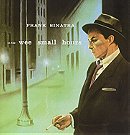
 62
62
 8.5
8.5
 0
0
